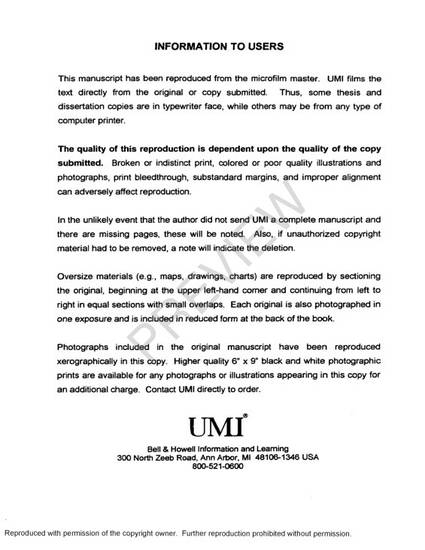
Dissertation
TWO CONTRASTING CASES OF MEN’S EXPERIENCES WITH CHRONIC CORONARY HEART DISEASE POST 1985
(1999)
Abstract
ABSTRACT
Since 1985 medical treatment for patients with chronic coronary heart disease
(CHD) has changed drastically. Newer treatments almost assure return to previous
activities, following myocardial infarction. Empirical studies of patients’ long term
experiences living with chronic CHD are lacking. The purpose o f this study was to
describe the post 1985 experiences of patients with chronic CHD who have had multiple
cardiac interventions and to identify the kind of meanings, if any, emerging from these
experiences and their possible association with patient orientations toward life style
changes.
The case study method was used to focus on the individual as the unit of analysis
and including in-depth interviews with patients, spouses and in one instance a registered
nurse who worked with a patient, and content analysis of medical and nursing records.
The original intent was to identify the similarities of patient experiences across six cases.
However, based on the unusual trajectory and complexity of the first patient’s
experiences, the focus shifted to dealing with the widely differing experiences of this
individual in relation to a second patient, whose trajectory had a more common textbook
appearance.
Bemie and Ed’s experiences with chronic CHD are best portrayed and understood
as a journey. To date, Bemie’s journey has included 5 phases: The Early Days, The Heart
Attack, Going Home and Recovery, The First Few Years, and Getting By-Living Day to
Day. Meaning was tied to day to day survival and was situational. Bernie’s experiences
and their meaning influenced his early and continued efforts in changing his diet, exercise
and stress reduction. Ed’s journey thus far, has included 7 phases: A Thirty Year Man,
Reproduced with permission of the copyright owner. Further reproduction prohibited without permission.
First Heart Attack, Back to Normal Activities, Second Heart Attack, The Next Five
Years, Third Heart Attack, and Recovery. For Ed, meaning, like his illness, emerged
slowly and subtly.
Symbolic interaction theory was partially useful in deciphering the mid level of
meaning. Existential analysis was useful in identifying the absence o f meaning during
portions of Bemie’s journey. Suggestion for future nursing research include adapting the
traditional model of treatment experience to better meet the unique needs of patients with
chronic CHD.
Keywords
- case study,
- chronic illness,
- trajectory,
- meaning making
Disciplines
Publication Date
1999
Degree
PhD
Field of study
Nursing
Department
Nursing
Advisors
Dr. Donna Schwatrz-Barcott
Citation Information
Donna M Zucker. "TWO CONTRASTING CASES OF MEN’S EXPERIENCES WITH CHRONIC CORONARY HEART DISEASE POST 1985" (1999) Available at: http://works.bepress.com/donna_zucker/41/
